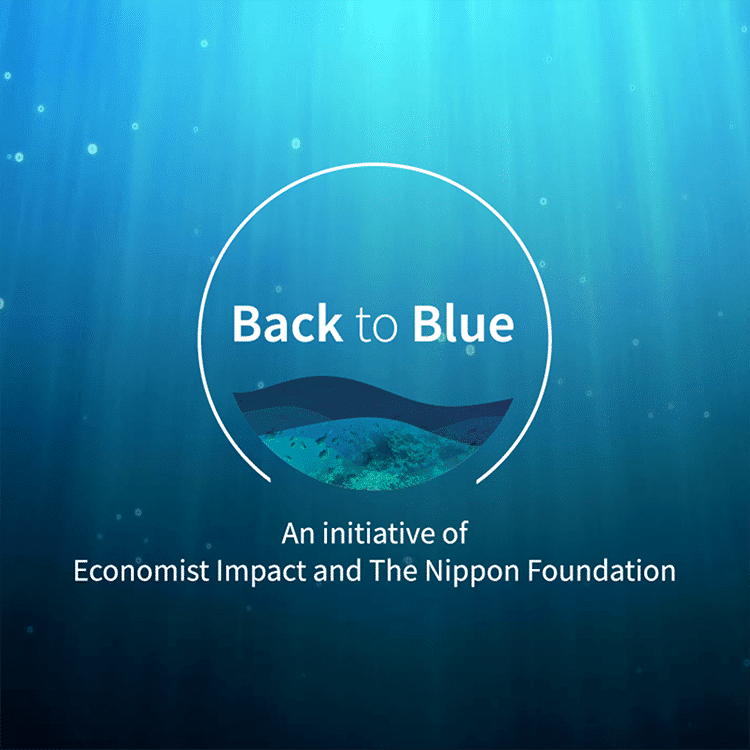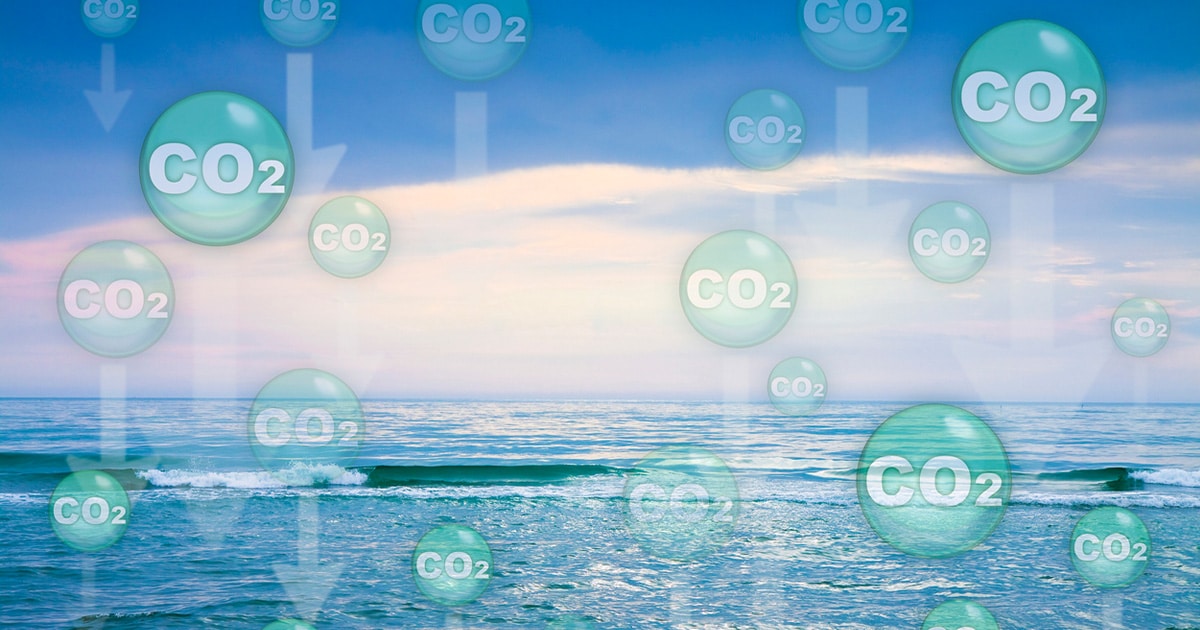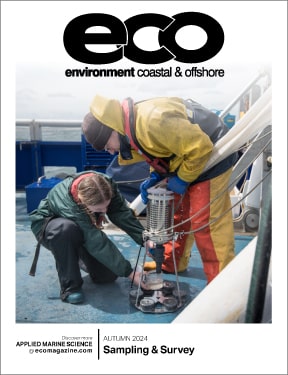We are rapidly running out of time to avoid the worst impacts of ocean acidification on marine life, livelihoods, and economies.
The need to address ocean acidification is the focus of a publication released today by Back to Blue, an initiative of Economist Impact and the Nippon Foundation, which is based on insights and research provided by the world’s leading marine scientists.

Ocean acidification results from seawater’s absorption of CO2 that is generated by human activity, such as the burning of fossil fuels. Over a quarter of all human-made CO2 emitted into the atmosphere annually is absorbed into the oceans. Although this mitigates the extent of global warming, CO2 emissions are rising dramatically, and the oceans can’t absorb the carbon quickly enough. The result is an alteration of ocean chemistry and an increase in acidity, which is weakening the ability of many marine organisms to protect themselves, grow and reproduce.
The publication highlights that if we continue on our current high-emissions trajectory, many marine organisms, including molluscs, pteropods (“sea butterflies”) and warm-water corals, will be at very high risk from acidification as early as 2050. The adverse impacts from the decline of such organisms on ocean biodiversity and marine food chains are likely to be severe.
“Ocean acidification, warming and deoxygenation are interacting with each other to create a perfect storm of environmental challenge,” says Steve Widdicombe, Director of Science at Plymouth Marine Laboratory and Co-Ordinator of the Ocean Acidification Research for Sustainability (OARS) program.
The publication also brings to light some of the potential economic impacts of ocean acidification, which are yet to be widely studied. If unaddressed, ocean acidification will put coastal economies and the aquaculture, tourism and other jobs that rely on them at grave risk. Past projections of economic losses from depleted shellfish production alone range from $75m in the United States to over $1bn in Europe. In many parts of the Global South, where fisheries and aquaculture contribute tens of billions to local economies and employ millions, the impacts of acidification on livelihoods will be felt extremely keenly.
Whilst the best way to avoid the most severe impacts of ocean acidification is to dramatically reduce CO2 emissions, the report highlights other measures that can lessen its effects. For example, marine protected areas, zones set aside by governments for conservation where human impact is reduced, can be made “climate smart” by using them to develop methods to mitigate or adapt to the effects of ocean warming and acidification. Technologies are also under development that can extract carbon directly from seawater. And nature-based solutions such as blue carbon habitats can reduce the amount of carbon that the ocean absorbs and thus reduce seawater acidity.
Charles Goddard, editorial director, global initiatives at Economist Impact says, “We know enough about building ocean resilience to develop effective means of mitigating and adapting to the effects of acidification. We must not delay their development. There will be costs, but they must be weighed against the benefits of avoiding future damage.”
Yohei Sasakawa, chairman of The Nippon Foundation says, “The ongoing impacts of ocean acidification on kelp forests, coral reefs, and marine life are a financially and ecologically devastating way to treat the source of over half the oxygen we breathe and one of the most valuable defences we have in the fight against climate change. How human-caused climate change is impacting our oceans is terrifying, but the solutions put forward give us room for a bit of optimism. It’s time to bring ocean acidification to the top of the agenda so that we can proactively respond to its impacts and promote the necessary mitigation schemes and solutions globally before it is too late.”

